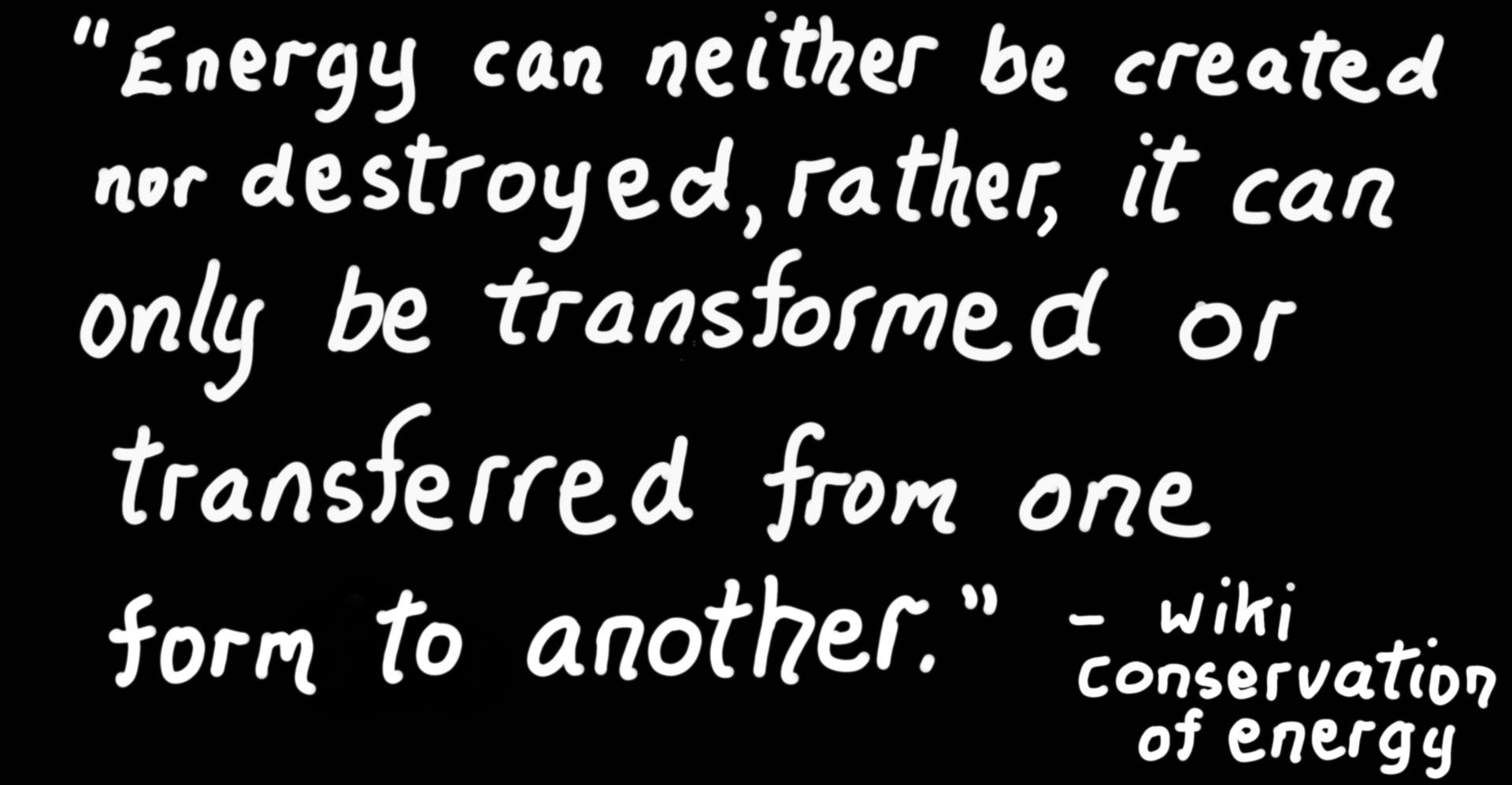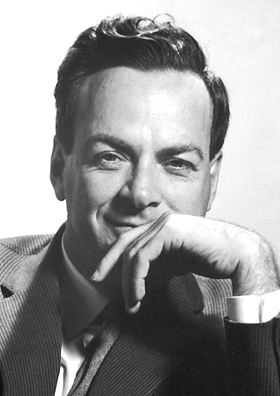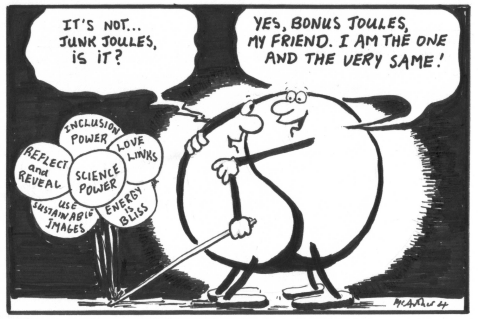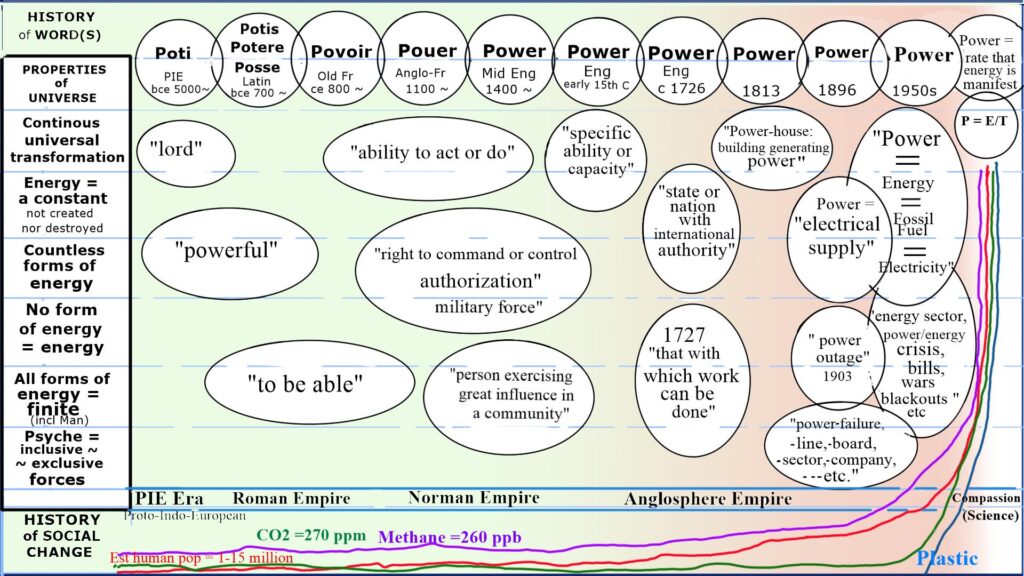The Conservation of Energy Principle
(A most wondrous gift of wisdom – we abuse it at our peril.)
The words “The Conservation of Energy Principle” form what is almost certainly the most sustaining, profound phrase in the English language yet our Anglosphere teachers rarely unpack its deep meaning.
It features in few, if any, of our National/State Education Frameworks.
This article outlines how, when understood and used with care, this great axiom has the potential to generate wonderful meaning in our lives. This is because the principle provides us with an invaluable tool for evaluating the sustainability of our language and behaviour.
This said, words alone fail to express the grandeur and wisdom of this great principle of physics. People of every culture since time immemorial have reflected on and attempted to communicate its sustaining messages to their peers and future generations. Words being insufficient, they have employed multiple modes of expression, including music, dance, mime, sculpture and, above all, the careful, contemplative actions of their daily lives.
” ‘All conditioned things are impermanent’ – when one sees this with wisdom, one turns away from suffering.”
The Buddha – Dhammapada, versus 277
(“Conditioning” meaning “created, generated, formed”)
All our existence involves paradox and accordingly The Conservation of Energy Principle is a paradoxical statement. For instance, the principle speaks of continuous change being a constant, of all potential being active and of no form of energy being energy. This article is about our wise use of words and acknowledging their limitations.
Those limitations, in particular the inability of our thought process to transcend paradox combined with the ingenious trickery of the ego, make this discussion challenging. So words may cloud our communication, confound this endeavour and fail us.
At such times it is helpful to remain mindful that we have other wordless modes that can better enable us to express and transcend paradox. When all modes are used in concert, they have proven power to sustain societies through millennia of continuous transformation. They can express the wisdom of all the cells in our body – every cell being a formation of wisdom of the Conservation of Energy Principle that has sustained their fundamental cellular form for billions of years.
“The Conservation of Energy Principle”
(Deconstructing your Science Teacher’s Talk)

It is probable you feel familiar with the idea of “The Conservation of Energy Principle” from your Science lessons at school. Perhaps you trusted your teachers knew what they were saying? Perhaps you can recite its statement by heart but have never reflected on its meaning? Perhaps it seems such an obvious truth you have decided that no reflection is needed?
The following Wiki statement is typical of the Anglo notions of “The Conservation of Energy” engrained in us.
“In physics, the law of conservation of energy states that the total energy of an isolated system in a given frame of reference remains constant — it is said to be conserved over time.[1] In other words, this law means that energy can neither be created nor destroyed; rather, it can only be transformed from one form to another.”
This Wiki definition is notable for its exclusive language on a range of levels. We will briefly discuss the meaning of six of its phrases as a prelude to providing a more enlightening description of the ways of the universe.
“In physics”
“Physics” here is defined as a branch of science. This is a very narrow definition because both “science” and “physics” are understood to be an exclusive, amoral way of thinking, “a department of knowledge”.
A more inclusive definition is that physics, like science, is a moral way of being in which we inquire, explore and experiment with ways to better interact with all according to the ways of the universe.
Physics is simultaneously a noun (the acquired wise knowledge) and a verb (enacting that wise knowledge) in all our affairs.
Physics is the learning~~practicing of the ways (principles) of the universe, all of which involves paradox.
“The law” (versus “the principle”)
The difference between the “law” and the “principle” is subtle though each evokes a very different world to the other. One world tends to be divisive and exclusive – that of the ego. The other tends to be connective and inclusive – that of compassion.
Screeds, mind-numbing screeds have been written debating the difference between these two words. It is debated in silos labeled “physics”, “science”, “mathematics”, “law”, “philosophy”, “education” and more. There are books, academic papers, articles and treatises galore debating the difference, each reflecting in exclusive way the viewpoint of the discipline or silo involved. There is even a book titled “Principles of Law – A Normative Analysis”.
The etymology of “law” and “principle” indicates they arise from very different origins.
“Law” is from PIE legh “to lie down, lay (what is right”), giving us Old Norse “lag” “something laid down, that which is fixed or set”. It is significant that some Indo-European languages were relatively inclusive – people were careful to employ different words for “a specific law” and tended not to speak of “the law”.
“Principle” is from PIE “per” meaning “in front of, before, first, chief” + “kap” meaning “to grasp”, giving us Latin principium (plural principia) “a beginning, commencement, origin, first part,” in plural “foundation, elements,”
By the 1500s the meaning of two words is being confused as in principle: “ a law or truth on which others are founded” and then the sense of “a right rule of conduct” (1530s).
Then in 1802 we have the conflation of law with principle, as in the meaning “Scientific sense of “general law of nature…”
Source of the stories of these two words:
https://www.etymonline.com/search?q=law
https://www.etymonline.com/word/principle#etymonline_v_19525
This conflation and confusion reflects a culture becoming more acquisitive and exclusive i.e. losing compassion and becoming more ego-driven. It is consistent with radical social change – this period being the advent of the English Combustion Revolution.
In terms of psychology and moral development, laws are extrinsic constructs to our being and have no inherent moral value in guiding our behaviour. Laws can easily become the prime domain of the ego and be used to enforce addiction, waste, pollution, slavery, genocide and other atrocity.
Above all, to create and speak of a universal “law” is to deny our fundamental uncertainty and fallibility in this human form amidst the universal transformation.
By contrast, to speak of a universal “principle” tends to remind us in humility and inclusiveness, thus increasing our ability to inquire of and acquire better ways to act in accord with the ways of the universe.
A man (human being) may know all the laws of mathematics pertaining to the destructive impacts of jet flight and yet lack the principles to care for Earth’s atmosphere.
“Energy”
“Energy” here is defined as “a quantity that denotes the ability to do work”, an exclusive concept arising from English attempts to harness the power of steam engines in the 1800s. It is significant that “work” is defined as any activity that adds wealth to The Crown, an amoral notion that, in general, excludes the vital contributions of women, children and elderly people and that demeans both the majority of people on Earth and the planetary systems that sustain Mankind.
“It (energy) is said to be conserved over time.”
This statement is exclusive in that it does not say energy is conserved, only that it is said to be conserved.
It also excludes our human role amidst the continuous, universal flux and the fact our notion of time determines how energy is manifest. See Power =Energy/Time
“this law means that energy can neither be created nor destroyed”
This statement is exclusive in that it assumes energy is something extrinsic, something apart from us, something “out there”, something we mortal beings can in some way change. It is more helpful to acknowledge we are mere forms of energy and to say energy is neither created nor destroyed. It is conserved.
Also no human being can know the limits of energy with certainty. We can only know it is as bounteous as the universe(s).
“it (energy) can only be transformed from one form to another.”
This statement is similarly exclusive, alienating and delusional as the last one. We human beings cannot transform energy. We can only change, conserve and destroy the forms it may be manifest in.
It is a common belief in our Anglosphere culture that a form of energy can be “energy” and and some institutions are even dedicated to “conserving energy”. This makes non-science of the principle and generates delusional behaviour.
“form”
The statements use of the word “form” is exclusive to the extreme. Wiki suggests there are only about 14 forms of energy whereas in reality there exist countless myriad forms of energy. Perhaps the authors mean types, classes or perspectives of energy or of forms of energy?
In summary, the above Crown English statement of the Conservation of Energy Principle bears all the hallmarks of the ego. It is fundamentally exclusive and lacking compassion.
The Conservation of Energy Principle
(A More Compassionate Statement)
First, observe how this chapter’s heading is about a principle, not a law.
Second, compassion being inclusiveness, we are careful to seek the most inclusive definition of the word “energy”. Whatever word we choose, it will fail to communicate that which is unimaginable. We are attempting to speak of the vast unknown and unknowable, the immense possibilities.
It is possible our English language has a word that maximally expresses that meaning of “many or all possibilities”. That word is “potential”. Etymology Online relates the story of the word thus:
Potential (adj)
late 14c., “possible” (as opposed to actual), “capable of being or becoming,” from Old French potenciel and directly from Medieval Latin potentialis “potential,” from Latin potentia “power, might, force;” figuratively “political power, authority, influence,” from potens “powerful,” from potis “powerful, able, capable; possible;” of persons, “better, preferable; chief, principal; strongest, foremost,” from PIE root *poti- “powerful; lord.”
The noun, meaning “that which is possible, anything that may be” is attested by 1817 (Coleridge), from the adjective.
Observe how in ancient times the word “poti” was both an adjective (“powerful”) and a noun (“lord”). As we can see below, the word “power” also rises from “poti“.
The adjectival forms arising from “poti” (potis, then potens , then potentalis, then potential) all retained transcendent meaning until the late 14th century when it was defined in a most exclusive and dualistic way: “possible” (as opposed to “actual“). Thus we have the cognitive phenomenon today in the Anglosphere of energy being described as being both Potential (non-active) and Kinetic (active).
By the mid-15c we have the adverb potentially (potencialli) with the meaning, “in possibility, in an undeveloped or unrealized manner or state” (opposed to actually)”.
Samuel Taylor Coleridge was a prominent English poet and a founder of the Romantic Movement in England who protested against the psychopathy enabling the excesses of the English Combustion Revolution. He is attested to have defined “potential” as a noun in 1817 with the meaning: “that which is possible, anything that may be”.
This more transcendent (compassionate) use of the word was radical in Crown English culture where the exclusive notion of Cartesian duality, dividing mind and body, was now endemic.
Leibniz (1646-1716) had distinguished two concepts: vis viva (the living force) and vis mortua (the dead force). These concepts are similar to the modern English notion of “kinetic energy” or “actualized energy” and to the notion of“potential energy” respectively.
In brief, the Coleridge’s more holistic definition of “potential” made nonsense in such an exclusive, dualistic culture where there is both energy that may be and energy that is. A modern variation on this dualistic phenomenon is our notions of there being both “energy” and “alternative energy” and both “energy” and “renewable energy” and both “energy” and “conserved energy”.
The dualistic, rationalistic Crown English culture disdained Coleridge and the Romantic Movement throughout the 19th Century, which is one reason why the European pioneers of quantum physics in the early 20th Century struggled in vain to express their mathematical insights in words. Put simply, they lacked the transcendent language required.
Richard Feynman, one of the finest theoretical physicists this past century, has spoken of our inability to truly know what energy is. However he affirms the Conservation of Energy Principle holds true from a mathematical point of view. A master communicator, he states this conclusion in the common language of the citizen.

“Conservation” (the conservation law) means this … that there is a number, which you can calculate, at one moment—and as nature undergoes its multitude of changes, this number doesn’t change. That is, if you calculate again, this quantity, it’ll be the same as it was before. An example is the conservation of energy: there’s a quantity that you can calculate according to a certain rule, and it comes out the same answer after, no matter what happens, happens.
Richard Feynman1918 –1988
And now contemporary notions of “quantum entanglement” etc further remind us that potential is active in ways unimaginable.
All this indicates a more transcendent, potent definition of “energy” is this statement:
Energy is the universal potential, all of which is active.
Statement of the nature of energy
In other words, energy is change of any and all kind with any change informing all other change.
All forms are of energy and are finite; no form is energy.
In this context a much more compassionate (inclusive and connective) statement of the Conservation of Energy Principle is this:
Energy being the universal potential, all of which is active, then energy is continuous, universal transformation and is so bounteous it can usefully be called a constant i.e it is conserved and is the ultimate re-source (resource).
Statement of the Conservation of Energy Principle
The Conservation of Energy Principle
(Our enduring guide to a sustainable life)
Information being physical, it is subject to the principles of physics and we can use their information to evaluate the sustainability of our language. We are information beings and live the paradox of information. We inform all even as we are informed by all.
In particular, our use of language simultaneously reflects and generates our state of being. Hence, with care we can rectify our language so it is in accord with the Conservation of Energy Principle. This accord in turn informs our behaviour so it too is in harmony with ways of the universe.
Conversely we can adapt our behaviour so it is more in accord with the Conservation of Energy Principle and this will be reflected in our use of more inclusive, even transcendent language
Here is a general statement of this principle of information~energy. It involves subtle matters best understood with compassion for it enables us to transcend the dictates and ingenious deceits of the ego:
A symbol use that embraces the principles of energy tends to sustain the user in true hope and harmony with all; a symbol use that denies the principles of energy tends to generate delusional behaviour in the user, psychic dissonance and ultimately self-destruction.
A principal of information~~energy
Implicit in this statement is the notion that information and energy are inextricably intertwined in such unimaginable profound, paradoxical ways that a more transcendent statement of the principle reads “information~~energy” – the double tilde indicating their intimate, fluctuating relationship. When they are in accord with each other, we have the language that enables us to transcend our human condition and better manifest the universal sustaining potential.
This information~energy principle not only enables us to transcend our personal human condition. We can also use it to transcend time and observe how behaviour, language and culture changes over millennia and how sustainable a society has been. This insight can inform our behaviour so we can predict our sustainability in the future.
No other idea has ever been subject to such intense, ingenious scrutiny over the ages as the Conservation of Energy Principle and yet no one has ever faulted it. Its wisdom remains the bedrock of true civilization, our greatest touchstone and guide for evaluating the sustainability of our lives.
First draft 25 March 2025
Employing the Wisdom of the Conservation of Energy Principle
(Eight Simple Steps to Enjoying Greater True Hope in Physics)
Seek out, reflect on and embrace the most transcendent definition of The Conservation of Energy Principle.
Put simply: it will mean change is a constant and all is continuous universal transformation.
Know that every moment of self-awareness involves the ego (the “I”), compassion and paradox.
Put simply: we all experience self-deceit and delusions to some degree.
Cultivate compassion, for without its inclusive force, the exclusivity of the ego prevails and traps us within the limitations of thought and paradox.
Put simply: enjoy humility and kindness for your self because this enables us to better enjoy the state of science and learn from our errors.
Know that all information being physical, it is subject to the principles of energy and we are information beings.
Put simply: understand how and why we are our language.
Use words with compassion for they simultaneously reflect and generate our state of being according their degree of harmony with the wisdom of the Conservation Principle of Energy.
Put simply: the more we know what we are saying, the better we are able to transcend the incredible trickery and deceits of the ego.
Seek out, treasure and endeavour to use words in your daily life that have the most open, inclusive meaning possible for they better enable the universal potential to be manifest in the most wonderful, sustaining ways.
Put simply: without compassion, our language becomes exclusive, mean and delusional, thus diminishing our lives to a world of deprivation and misery.
Know that our human form, in common with all the other countless possible forms of energy, is a unique, fleeting balance of the flux of universal forces, informing all even as we are informed by all.
Put simply: we are all mortal, moral beings regardless of what the ego would have us believe.
Be mindful we are all part of the vast information system, which is the cosmos, including all the sentient living cells of our bodies whose wisdom has sustained their form through billions of years of solar, tectonic, climatic and other change.
Put simply: enjoy humility and ask existence in most open way possible, “What would you have me do? Where would you have me go? What would you have me say and to whom?” When asked with compassion, the answer tends to be far more insightful and rewarding than could ever be willed or imagined.*
*Note One. When asked to review The Crown NZ National Education Framework in 2005, it occurred to me to ask “What is science?”. The answer was another question, “Ask what are the requisites for science to exist?” The list of requisites that formed seemed vaguely familiar: they were all qualities of compassion.
View A Compassionate Education Framework
*Note Two. My employment in 2000 for an “energy efficiency” company caused me to ask, “What is energy efficiency?” The conventional definitions that our experts provided were all clearly flawed. The answer came in the form of the creation of a cartoon strip “Bonus Joules and The Knowledge Economy”, in which Bonus Joules, symbolizing our inclusive qualities, searches for meaning and eventually joins with our complementary exclusive qualities, thus forming the profound Yin~~Yang symbol.

*Note Three. The objective of this new website is to somehow encapsulate the best insights of my previous three websites exploring the nature of energy. The task overwhelmed me, causing me to ask “What is the best formation of those insights?” The answer eventually came with the amazing realization that information and energy are inextricably intertwined i.e. “information~~energy”: they are of each other even as they are the same.
Science.

